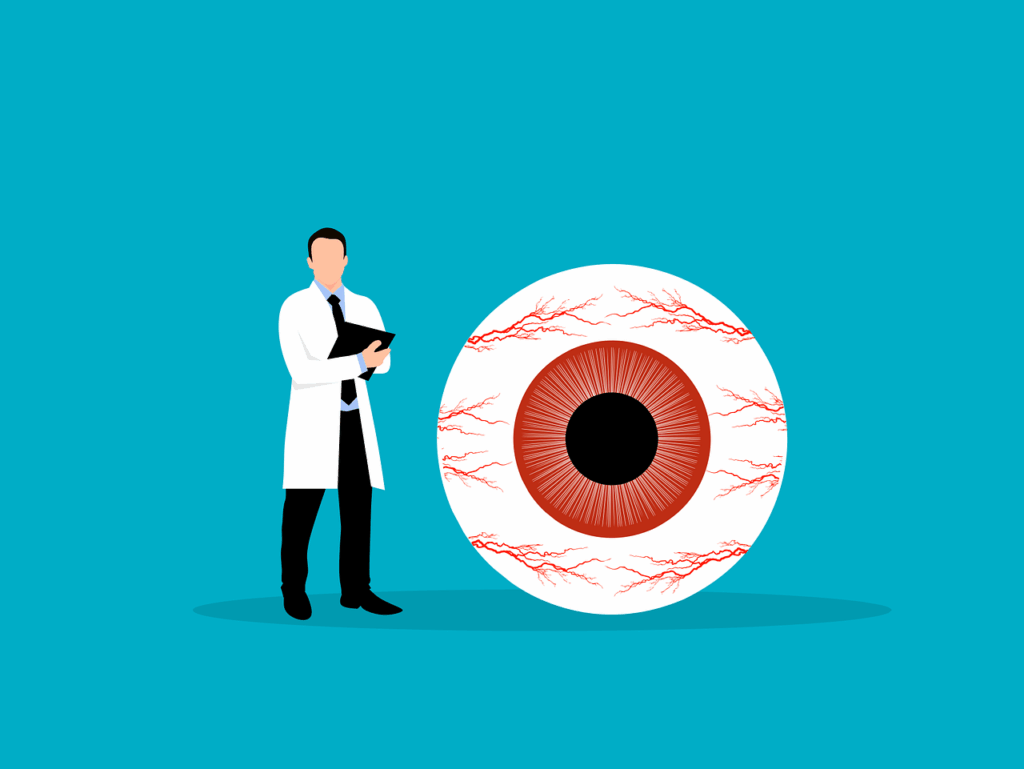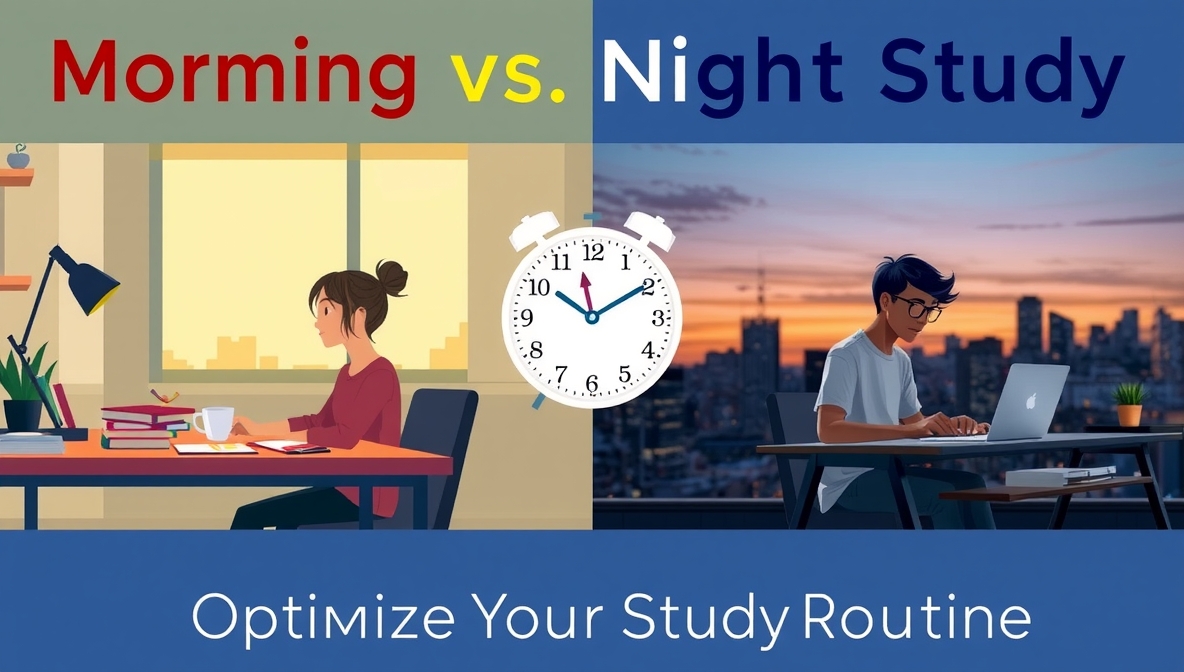The question of whether to study in the morning or at night has sparked debates in dormitories, libraries, and academic forums for generations. Some students swear by the crisp clarity of dawn study sessions, while others insist their minds only truly awaken after sunset. The truth, as research reveals, is far more nuanced than a simple “one-size-fits-all” answer. Your optimal study time depends on a complex interplay of biological rhythms, cognitive processes, lifestyle factors, and individual differences that make each person’s ideal learning schedule unique.

This comprehensive analysis explores the scientific evidence behind morning and night study patterns, examines the advantages and disadvantages of each approach, and provides a framework for discovering your personal optimal study timing. Understanding these factors will help you align your academic efforts with your natural biological rhythms, maximize learning efficiency, and achieve better academic outcomes with less effort.
The Science of Circadian Rhythms and Learning
Understanding Your Internal Clock
Every human possesses an internal biological clock called the circadian rhythm, a roughly 24-hour cycle that regulates sleep, wakefulness, hormone production, body temperature, and cognitive performance. This rhythm is primarily controlled by the suprachiasmatic nucleus in your brain, which responds to light and darkness cues to coordinate your body’s daily functions.
Key circadian markers affecting learning:
Cortisol Production: Often called the “stress hormone,” cortisol actually plays a crucial role in alertness and cognitive function. Healthy individuals experience a sharp rise in cortisol upon waking (cortisol awakening response), peaking 30-45 minutes after rising, then gradually declining throughout the day. This morning cortisol spike enhances alertness, memory consolidation, and focus—biological factors that strongly favor morning learning for many people.
Core Body Temperature: Your internal temperature fluctuates throughout the day, typically lowest around 4-6 AM and highest in early evening. Higher body temperatures correlate with increased alertness, faster reaction times, and better cognitive performance, suggesting that late afternoon and early evening may represent peak learning periods for many individuals.
Melatonin Cycles: This sleep-inducing hormone begins rising in the evening, peaks around 3-4 AM, then drops sharply upon waking. High melatonin levels impair attention, memory formation, and cognitive processing, making late-night study sessions physiologically challenging for most people.
Chronotypes: The Individual Difference Factor
Perhaps the most important factor in determining optimal study timing is your chronotype—your individual preference for morning or evening activities based on your unique circadian rhythm patterns.
Morning Larks (Approximately 25% of population):
- Peak alertness: 6 AM – 12 PM
- Optimal cognitive performance: Early morning hours
- Natural bedtime: 9-11 PM
- Characteristics: Higher cortisol levels upon waking, faster morning alertness, declining performance after 2 PM
Night Owls (Approximately 25% of population):
- Peak alertness: 6 PM – 2 AM
- Optimal cognitive performance: Late evening hours
- Natural bedtime: 12-2 AM or later
- Characteristics: Delayed cortisol release, slow morning start, sustained evening energy
Intermediate Types (Approximately 50% of population):
- Peak alertness: 10 AM – 6 PM
- Flexible adaptation to different schedules
- Natural bedtime: 10 PM – 12 AM
- Characteristics: Moderate morning alertness, sustained midday performance, gradual evening decline
The Case for Morning Study Sessions
Cognitive Advantages of Morning Learning
Peak Working Memory Performance: Research consistently shows that working memory—your brain’s ability to hold and manipulate information—typically performs best in the morning hours. This makes morning sessions ideal for learning new concepts, solving complex problems, and engaging in analytical thinking that requires holding multiple pieces of information simultaneously.

Enhanced Memory Consolidation: Sleep serves as a natural memory consolidation period, with the brain organizing and strengthening memories formed during the previous day. Morning study sessions benefit from this overnight processing, as information learned the day before becomes more accessible and can serve as scaffolding for new learning.
Reduced Decision Fatigue: As the day progresses, your mental energy depletes through constant decision-making, even for minor choices. Morning study sessions occur when your cognitive resources are fully replenished, allowing for better focus, more efficient learning, and superior problem-solving capabilities.
Minimal Distractions: The early morning hours typically offer fewer social distractions, quieter environments, and reduced digital interruptions. Most friends aren’t texting at 6 AM, social media is less active, and the world generally operates at a slower pace, creating naturally conducive learning conditions.
Hormonal Optimization for Learning
Morning study aligns with natural hormonal patterns that support learning:
Testosterone Peaks: Both men and women experience testosterone peaks in the morning, which correlates with increased motivation, confidence, and task persistence—all beneficial for challenging study sessions.
Growth Hormone Benefits: Growth hormone, which peaks during deep sleep, supports brain plasticity and memory formation. Morning learners benefit from the lingering effects of overnight growth hormone release.
Balanced Neurotransmitters: Morning hours typically feature optimal levels of dopamine, norepinephrine, and acetylcholine—neurotransmitters crucial for attention, motivation, and memory formation.
Lifestyle Advantages of Morning Study
Consistent Schedule Alignment: Morning study schedules align well with traditional academic and professional schedules, making it easier to maintain consistent routines and meet daytime obligations.
Better Sleep Hygiene: Students who study in the morning often maintain better sleep schedules, as they naturally become tired earlier in the evening and avoid the sleep-disrupting effects of late-night screen exposure and mental stimulation.
Stress Reduction: Completing important academic work early in the day reduces anxiety about pending tasks and creates a sense of accomplishment that improves mood and motivation for the remainder of the day.
The Case for Night Study Sessions
Cognitive Advantages of Evening Learning
Creative Problem-Solving Enhancement: Research suggests that mild cognitive fatigue experienced in the evening can actually enhance creative thinking by reducing inhibitory control. This “cognitive disinhibition” allows for more innovative connections between ideas and enhanced insight problem-solving.

Improved Long-Term Memory Encoding: Some studies indicate that information learned in the evening may be better consolidated during the subsequent sleep period, as the brain has fewer competing memories to process overnight compared to information learned in the morning.
Enhanced Focus for Some Chronotypes: Night owls demonstrate significantly better cognitive performance during evening hours, with some research showing up to 40% improvement in attention and processing speed during their preferred evening study times compared to forced morning sessions.
Reduced Cognitive Interference: Evening study sessions may benefit from reduced interference from daytime activities and stressors, allowing for deeper focus on academic material without the mental residue of daily obligations.
Environmental and Social Advantages
Quiet Study Conditions: Evening and night hours often provide quieter study environments, with fewer people active in libraries, dormitories, and study spaces. This natural noise reduction can significantly improve concentration and learning efficiency.
Extended Uninterrupted Time: Evening study sessions can extend for longer periods without the interruption of daytime obligations like classes, meetings, or social commitments, allowing for deep dive sessions into complex material.
Reduced Social Pressure: Night study eliminates many social distractions and obligations that compete for attention during daytime hours, creating natural boundaries around study time.
Temperature and Alertness Patterns
Peak Body Temperature: For many individuals, core body temperature peaks in the early evening (around 6-8 PM), correlating with enhanced alertness, faster cognitive processing, and improved physical coordination.
Secondary Alertness Peak: Most people experience a secondary alertness peak in the evening hours (around 6-10 PM) after the post-lunch dip, making this window potentially optimal for cognitive performance.
Comparative Analysis: Task-Specific Optimization
Morning Study Advantages by Subject Type
Mathematics and Logic: Morning hours favor analytical thinking required for mathematical problem-solving, logical reasoning, and systematic analysis. The enhanced working memory and reduced cognitive load make complex calculations and multi-step problems more manageable.
Language Learning: Morning sessions benefit vocabulary acquisition, grammar learning, and pronunciation practice due to enhanced memory encoding and reduced interference from daily language use.
Science Concepts: Learning new scientific principles, understanding complex systems, and engaging in hypothesis formation benefit from morning cognitive clarity and enhanced analytical processing.
Reading Comprehension: Dense, technical, or challenging texts are often better processed in the morning when attention spans are longest and cognitive resources are fresh.
Evening Study Advantages by Subject Type
Creative Writing: Evening hours may enhance creative expression, narrative development, and innovative thinking required for essays, stories, and artistic projects.
Review and Memorization: Simple review tasks, flashcard sessions, and memorization activities can be effectively completed in the evening when they require less intensive cognitive processing.
Discussion and Collaboration: Evening study groups may benefit from reduced inhibitions and enhanced social interaction that can facilitate collaborative learning and idea exchange.
Reflection and Integration: Evening sessions may be optimal for synthesizing daily learning, connecting concepts across subjects, and engaging in reflective analysis of material.
Individual Assessment: Finding Your Optimal Study Time
The Chronotype Assessment Protocol
Week-Long Tracking Method: Monitor your natural patterns for one week without artificial constraints:
Daily Measurements:
- Natural wake time (without alarms)
- Energy levels hourly (1-10 scale)
- Cognitive performance on simple tasks
- Mood and motivation fluctuations
- Natural bedtime preferences
Performance Testing: Complete identical cognitive tasks (math problems, reading comprehension, memory tests) at different times of day and compare performance metrics.
Attention Span Monitoring: Track how long you can maintain focus on academic tasks during different time periods throughout the day.
Lifestyle Integration Factors
Academic Schedule Constraints:
- Class schedules and their impact on available study time
- Assignment deadlines and their temporal distribution
- Group project coordination requirements
- Laboratory or practical session timing
Personal and Social Obligations:
- Work schedules and employment demands
- Family responsibilities and expectations
- Social commitments and relationship maintenance
- Exercise routines and health requirements
Living Situation Considerations:
- Roommate schedules and noise levels
- Library and study space availability
- Transportation limitations
- Technology access and restrictions
Hybrid Approaches: Maximizing Both Time Periods
The Balanced Schedule Strategy
Rather than choosing exclusively morning or night study, many successful students adopt hybrid approaches that leverage the advantages of both time periods.
Morning Power Sessions (6-10 AM):
- New concept learning and complex problem-solving
- Challenging subjects requiring peak cognitive performance
- Important assignment work requiring sustained attention
- Review of previous day’s learning for consolidation
Evening Integration Sessions (6-10 PM):
- Review and practice of morning material
- Creative projects and writing assignments
- Group study and collaborative work
- Reflection and synthesis activities
Subject-Specific Timing Optimization
High-Cognitive-Load Subjects: Schedule during personal peak performance hours (typically morning for most people)
Medium-Cognitive-Load Subjects: Schedule during secondary peak periods or during good-but-not-optimal hours
Low-Cognitive-Load Subjects: Use for filling gaps, evening review, or times when energy is lower but some productivity is still possible
Practical Implementation Strategies
Transitioning to Optimal Study Times
Gradual Adjustment Protocol: If your current study schedule doesn’t align with your optimal timing, adjust gradually:
Week 1: Shift study time by 30 minutes toward optimal period Week 2: Continue shifting by additional 30 minutes Week 3-4: Fine-tune timing based on performance and energy levels Week 5+: Maintain consistent optimal schedule
Environmental Optimization by Time Period
Morning Study Environment:
- Bright lighting to support natural cortisol awakening response
- Cool temperature to maintain alertness
- Minimal distractions and clean, organized space
- Healthy breakfast foods available
- Comfortable but alert seating position
Evening Study Environment:
- Warm, focused lighting to avoid disrupting circadian rhythms
- Comfortable temperature to prevent drowsiness
- Noise reduction strategies for better concentration
- Healthy snacks to maintain stable blood sugar
- Blue light filters on devices to protect sleep quality
Schedule Maintenance and Adaptation
Consistency Principles:
- Maintain regular study times even on weekends when possible
- Adjust for seasonal changes in natural light exposure
- Account for exam periods requiring schedule intensification
- Build in flexibility for life changes and unexpected demands
Performance Monitoring:
- Track academic performance correlation with study timing
- Monitor energy levels and motivation during different study periods
- Assess long-term sustainability of chosen schedule
- Adjust based on life stage changes (age, stress levels, health status)
Special Considerations and Exceptions
Exam Period Adaptations
During intensive exam periods, optimal study timing may shift due to:
- Increased stress affecting natural circadian rhythms
- Need for extended study hours requiring both morning and evening sessions
- Specific exam timing requiring schedule adjustments
- Higher caffeine intake affecting sleep patterns and natural alertness
Seasonal Variations
Winter Considerations:
- Reduced daylight affecting circadian rhythm regulation
- Potential for Seasonal Affective Disorder impacting energy levels
- Increased artificial light exposure needs
- Possible shifts toward later optimal study times
Summer Considerations:
- Extended daylight hours affecting natural bedtime
- Potential for earlier natural wake times
- Heat affecting afternoon and evening cognitive performance
- Social schedule changes impacting study time availability
Health and Medication Factors
Certain health conditions and medications can significantly impact optimal study timing:

- ADHD medications affecting attention and alertness patterns
- Depression impacting energy levels and motivation cycles
- Sleep disorders disrupting natural circadian rhythm function
- Chronic health conditions affecting cognitive performance timing
Conclusion: Personalizing Your Academic Chronobiology
The question of whether morning or night study is “better” has no universal answer because it depends entirely on your individual biological patterns, lifestyle constraints, and academic demands. The most successful students are those who understand their personal chronobiology and align their study schedules accordingly, rather than forcing themselves into arbitrary patterns that fight against their natural rhythms.
Key takeaways for optimizing study timing:
Individual Assessment is Crucial: Spend time understanding your natural energy patterns, cognitive performance fluctuations, and chronotype preferences before committing to a study schedule.
Subject-Specific Optimization: Match your most challenging subjects to your peak cognitive performance periods, while using lower-energy times for review and less demanding tasks.
Flexibility and Adaptation: Be willing to adjust your study schedule based on changing life circumstances, academic demands, and seasonal variations while maintaining consistency when possible.
Quality Over Quantity: Focus on studying during periods when you can maintain high-quality attention and learning rather than simply accumulating study hours during suboptimal times.
Lifestyle Integration: Consider how your study schedule fits with other important life demands and choose sustainable patterns that support both academic success and overall well-being.
The ultimate goal is not to conform to an idealized study schedule but to discover and implement the timing patterns that maximize your individual learning potential. Whether you’re a dawn-breaking morning lark who thrives on early cognitive challenges or a night owl who finds creative inspiration in the quiet hours after sunset, success comes from working with your natural patterns rather than against them.
Remember that optimal study timing is just one component of academic success. Regardless of when you choose to study, the quality of your learning strategies, consistency of effort, and alignment with your personal biology will ultimately determine your academic achievements. Use this knowledge as a foundation for building a personalized approach to learning that honors your individual needs while maximizing your educational outcomes.



